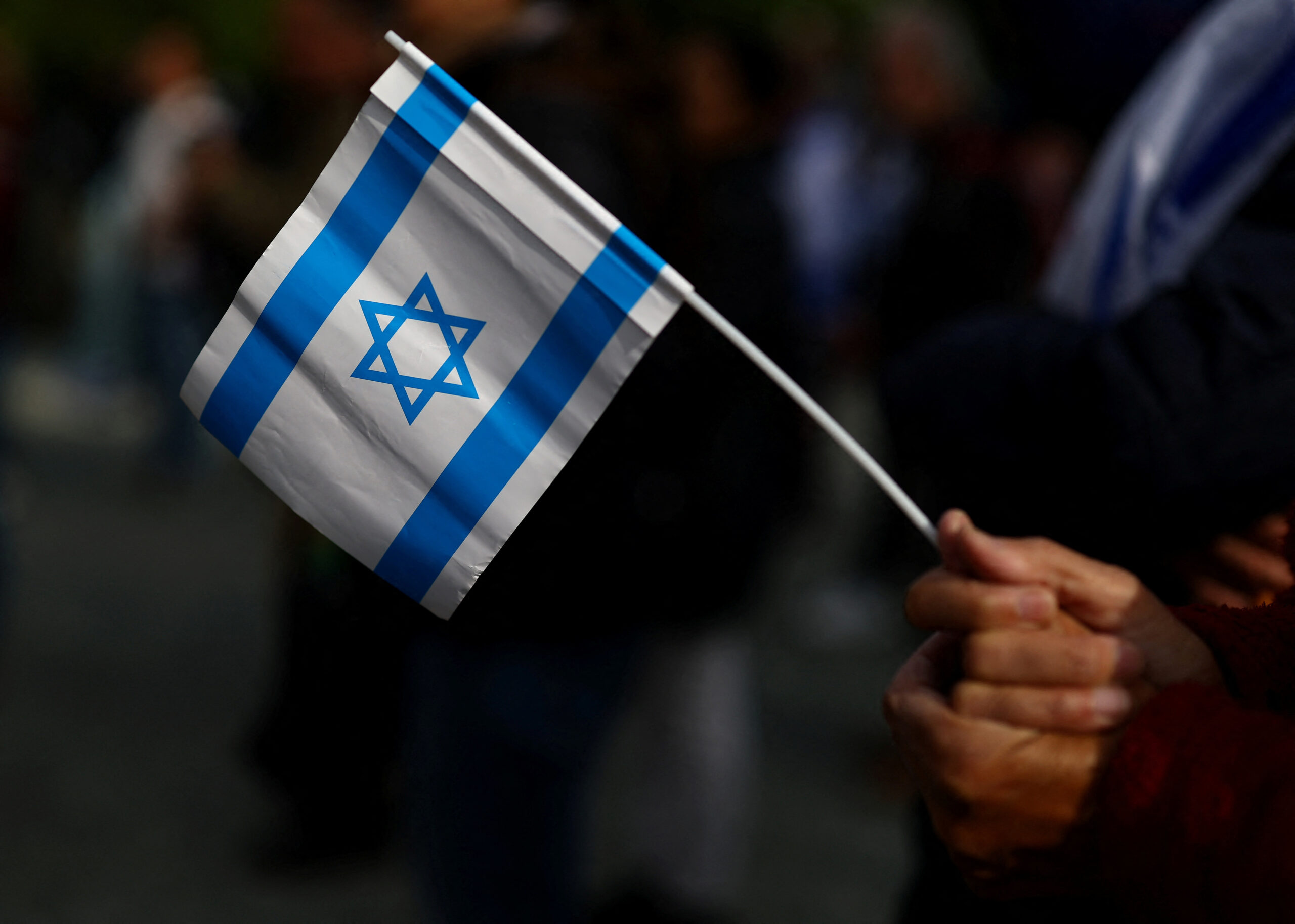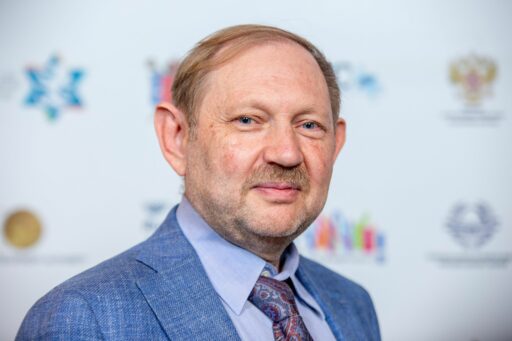Russia has always been a country of significant interest to Israelis, partly because a substantial portion of Israeli Jews have familial roots in either Tsarist Russia or the USSR. On one hand, Russia, as the successor to the USSR, which led the anti-Western camp during the Cold War, has long been perceived by Israeli society as a force with fundamentally opposing interests. Such views persist among much of Israel’s intellectual and political elite today. On the other hand, at the level of public consciousness, Russia has never been considered an «inherent» enemy of Israel.
The renewed interest in Russia in the early 2000s stemmed from two key processes: Moscow’s «return» to the Middle Eastern arena as a significant player, directly affecting Israel’s interests, and the successful integration of the «Great Aliyah» (Jewish repatriation) from the late USSR and post-Soviet states. Over a third of this aliyah consists of immigrants from Russia, contributing to a sharp increase in cultural, familial, and emotional-historical ties between citizens of the two countries. These factors influenced public opinion in both nations, which their leaders had to consider—albeit to varying degrees—when shaping bilateral relations.
Since Benjamin Netanyahu’s return to power in February 2009, the intensification of Israel’s foreign policy toward Russia has been evident across nearly all levels, from intergovernmental and interparliamentary contacts to joint commissions on trade-economic and cultural cooperation. This approach marked a radical departure from the policies of previous governments (including Netanyahu’s first term), which focused primarily on strengthening ties with Russian Jews, encouraging their immigration to Israel, importing energy resources, and providing lukewarm diplomatic and legal support for Israeli businesses in the Russian market. Vladimir Putin’s visit to Israel in May 2012, which Israeli authorities deemed highly significant, solidified this «new trend» in bilateral relations.
This intensification is typically explained by two main factors. First, Israel’s desire to find alternative points of support amid strained relations with the United States following the Obama administration’s pressure on Israel as part of its reevaluation of Middle East policy. Second, the Israeli political establishment’s recognition of Russia’s growing influence in political and economic-strategic processes directly tied to Israel’s interests in the «small» (the Arab-Israeli conflict zone) and «greater» (from the Maghreb to Central and South Asia) Middle East.
Within these processes, the community of immigrants from the former USSR («Russian Israel») served as a kind of «reference group» for Israeli elites and society. For example, the introduction of a visa-free regime with Russia in 2016 (and later with Ukraine and Belarus) was adopted by the Israeli government primarily at the insistence of the Yisrael Beiteinu party, which represents the interests of Russian-speaking voters. Yisrael Beiteinu made visa-free travel a condition for joining the ruling coalition.
At the time, the positive political-diplomatic and economic prospects of this step were far from obvious to most Israeli leaders. However, politicians could not ignore the sentiments and demands of the nearly one-million-strong community of former Soviet immigrants, which at various times accounted for 13% to 16% of the local electorate and often determined the success or failure of candidates for prime minister and several Israeli parties in national elections. For Israeli politicians, «good relations with Russia» are seen as a key to securing the support of the Russian-speaking electorate, though the community’s actual sentiments are more complex.
Do «Russian» Israelis Need Russia?
Between 2009 and 2017, the sociological agencies Mutagim and PORI, following a program proposed by the author of this article, conducted a series of four surveys among Russian-speaking Israelis, measuring, among other things, attitudes toward the idea of an Israeli-Russian strategic partnership. The results indicate that this topic was quite relevant to respondents. Only about 10% (peaking at 17% in 2015) refrained from expressing an opinion on the issue. However, the share of those supporting a shift away from the U.S. in favor of partnerships with other strategic allies, including Russia, was small—ranging from 4−5% to just over 10%. Roughly two to three times as many respondents held the opposite view, noting that «Russia’s interests will primarily lie in the Arab world, so the reliability of its partnership with Israel will always be questionable.» Among immigrants from Moscow and St. Petersburg, this view was nearly 1.5 times more prevalent than among those from Russia’s regions.
«Russian» Israelis clearly understood that, in the existing global political context, Israel could not adhere to a policy of «permanent neutrality.» Thus, the share of «isolationists» advocating for «equidistance from various global centers of power» remained low, fluctuating between 15% and 20%. At the same time, the majority of former Soviet immigrants did not believe that unconditional partnership with the U.S. was Israel’s only foreign policy option. The most popular stance, garnering between a third and nearly half of the votes from post-Soviet immigrants, was support for «strengthening and expanding Israel’s relations with Russia, but not at the expense of its special relationship with the U.S.» Fluctuations in support for this approach (8−12%) across the four survey waves were attributed to external and internal factors, such as frustration with the Obama administration’s pro-Arab stance, the arrival of a large group of immigrants following Russia’s annexation of Crimea and the war in eastern Ukraine, the introduction of visa-free travel, and other events.
No significant differences were observed among supporters of different parties or representatives of various waves of aliyah from the former USSR on this issue. The exception was a slightly higher share of «Kremlin optimists» among immigrants from Russia during the post-default era of the late 1990s, many of whom were driven to emigrate to Israel primarily by economic considerations. Additionally, a higher proportion of this group returned to Russia after the crisis there subsided.
The data overall demonstrate that the community of former Soviet immigrants is not characterized by so-called «ex-patriotism of political consciousness,» i.e., an orientation toward their country of origin and identification with its political interests. Studies of immigrants from the former USSR show that the vast majority of this group (e.g., nearly 70% of respondents in a PORI survey in March 2017) consider themselves «to a large extent» or «exclusively» Israeli. The share of those who do not feel an Israeli identity rarely exceeded 20% in surveys, a trend observed not only among ethnic Jews but also among their family members of mixed or non-Jewish backgrounds. Expectations in the early 1990s among some left-wing and Arab circles that the secular and partially non-Jewish community would weaken Israel’s Jewish character have not been borne out.
«Russian Israel» as a Party to the Conflict
A 2014 study, conducted shortly after Russia’s annexation of Crimea, revealed that the «Russian» Israeli community was almost evenly split on the issue. One group supported one side of the conflict, while the other sympathized with neither Russia nor Ukraine or had no position at all. In the first group, those supporting Ukraine outnumbered those supporting Russia by a factor of two. However, only about 10% advocated for active Israeli support for one side, with a slight preference for Kyiv. By 2017, the share of those favoring an active stance had dropped to 5%.
Differences in positions depended on the length of residency and country of origin. Immigrants from 1988−1989, often former activists of the Jewish movement in the USSR, leaned toward pro-Ukrainian sentiments, viewing Russia as the heir to the empire they had fought against and escaped from. Pro-Ukrainian sympathies were also evident among immigrants arriving since the early 2010s, particularly those from large cities, socially established, relatively young, and part of the first («Crimean») stage of «Putin’s» aliyah from both countries. Among immigrants from Ukraine, active pro-Ukrainian positions were far more common than pro-Russian ones. Among those from Russian-speaking regions of eastern Ukraine (mainly Jewish immigrants from the 1990s and early 2000s), supporters of Kyiv outnumbered those backing pro-Russian separatists by nearly four to one. However, two-thirds of respondents in 2017 supported neither side or were uninterested in the issue.
At first glance, Russia’s full-scale invasion of Ukraine in February 2022 appears to have radically altered this picture. The shock felt by citizens of many countries was shared by Israelis, especially as one of the first outcomes of the unfolding conflict was the emergence of tens of thousands of Jewish refugees in Europe for the first time since World War II. In March 2022, over 70% of Israelis told researchers at the Israel Democracy Institute (IDI) that they followed events in Ukraine «very closely» or «fairly closely,» with an even higher share—85%—among Russian-speaking Israelis. Two-thirds of Israelis overall and three-quarters of Russian-speaking Jews blamed Russia’s leadership for starting the war, while the share of those attributing blame to Kyiv fell within the margin of error.
Israeli civil society, particularly its organized and informal Russian-speaking segment, enthusiastically mobilized material aid for Ukrainians and engaged in pro-Ukrainian public diplomacy. Pro-Kremlin groups, meanwhile, remained largely invisible, especially after Hamas’s attack on October 7, 2023, when Russia effectively adopted an anti-Israel stance at the declarative level.
However, there is another aspect to this issue, related to the relations between Israeli and Ukrainian leadership following the start of Russia’s full-scale invasion. Israel immediately condemned the invasion and, from the first weeks, provided Ukraine with extensive humanitarian and material aid, as well as diplomatic and political support. While Israel did not officially join Western economic sanctions against Russia, in practice, it took no actions to help circumvent them. Though not a NATO member or an official guarantor of Ukraine’s security, Israel supplied protective equipment, certain defensive systems, and non-lethal weaponry. According to Israeli leaders, this demonstrated Israel’s commitment to Ukraine and its people. However, Kyiv did not consider Israel’s support sufficient.
At the same time, about 60% of Israelis (and slightly more among former Soviet immigrants) who participated in the aforementioned 2022 IDI study fully or mostly supported the Israeli government’s approach to the war in Ukraine. Similar sentiments were recorded in subsequent periods. According to a 2024 study, the results of which were kindly shared with the author by its initiator, Elina Bardach-Yalov, roughly a third of surveyed former Soviet immigrants—twice as few as seven years earlier—supported neither side in the Russia-Ukraine conflict and did not believe Israel should intervene. A similar share expressed passive support for Ukraine (and very few for Russia). Only a quarter believed Israel should openly support Ukraine, while 1−3% favored Russia. Differences between «veteran» immigrants and members of «Putin’s aliyah» were minimal this time.
In other words, the Soviet and post-Soviet heritage of immigrants—including those from the most recent «war aliyah» from Russia—once again proved less significant than their Israeli experience, contrary to stereotypes. While not lobbyists for unconditional Israeli-Russian cooperation, they were, at certain points (especially during the Russian-Israeli rapprochement of the 2010s), quite prepared to serve as a key bridge for rationally structured cooperation. However, they hardly saw themselves as a local branch of the «Russian world.» Over the three decades since the start of the «Great Aliyah,» Russian-speaking immigrants have largely integrated into Israeli society and its dominant system of values and political beliefs.










